Never in our lifetimes have issues surrounding climate change been more significant.
The COP27 climate conference came to a close yesterday, one year after its staging in Glasgow which prompted widespread opinion and debate.
Thousands rallied in the streets to protest. Media interest was very high, but views are mixed as to whether the promises made at the conference have come to much fruition.
Things felt more distant this year, with the world’s heads of state taking to Egypt to gather for the conference.
But just how relevant are these climate conferences for people here in the north and north-east?
We talked to businesses, arts organisations and climate activists to find out how the work they’re doing is helping to promote a greener future while also hearing their views on whether COP27 will have any impact to people here in Scotland.
Refillosophy
Gina Adie is the owner of Refillosophy.
Based in Aberdeen’s west end, this zero-waste shop puts sustainability to the forefront.
“We try to promote packaging free as much as possible by asking people to bring their own containers to reuse,” says Gina.
“We work mostly with small suppliers who will also take their containers back to refill stock.
“The emphasis is that all the products we sell are sustainable.”
Leaving a legacy
Gina says that her journey towards sustainability started when she became a parent, conscious of the legacy that she would be leaving behind for her daughter.
“Even then, when I had my daughter 19 years ago, we could see that climate change was happening right in front of our eyes,” says Gina.
“It actually terrifies me to think what the world is going to be like in 10 or 20 years’ time if we carry on down the same path.”
From local fruit and veg to homeware products and eco-friendly gifts, Refillosophy prides itself on being an “antithesis to the supermarket”.
Gina describes some of her customers as being “zero-waste heroes” while some others may not even be aware that it’s a zero-waste shop at all.
Simplicity meets sustainability
“We try to make things as simple as possible,” she says.
“There’s a scheme with a lot of zero waste shops called Just One Bottle, with the intention that your sustainability journey all starts just with refilling one bottle.
“It’s not about having an Instagrammable cupboard full of mason jars to show that you’ve been to the zero-waste shop. It’s about making a lifestyle choice that’s going to impact positively on the world.”
With COP27 having taken place in Egypt this year, Gina is hoping for a similar boost in activity at her shop to the one she saw with last year’s conference in Glasgow.
“Definitely around COP26 last year, there was a flurry of activity,” says Gina.
“Whenever climate issues are in the news, we do tend to see more people coming in. So, I’m hopeful that COP27 will encourage people to re-evaluate their choices.”
Lack of faith in politicians
However, Gina remains to be convinced about the importance of the climate conference.
Instead, she believes that grassroots action is what’s needed to bring about positive steps towards climate change.
“I don’t have much faith in the politicians attending the conference, I’m afraid,” says Gina.
“It’s going to be much more of a grassroots movement that has a chance of making any difference.
“People might feel helpless when it comes to climate issues. But every positive change we can make will have an impact.”
Eden Court
Arts organisations are also leading the way towards promoting a more climate conscious future. Eden Court in Inverness is one of them.
The organisation’s Environment and Climate Crisis Group is chaired by Louise Marshall and its action-based focus evolved during the Covid pandemic.
“People became much more aware of the emergency of the climate crisis during Covid as they were living their lives in a different way,” says Louise.
“Prior to Covid, we had set up the Green Team. But there was a sense of urgency from everyone here at Eden Court and we recognised it needed to be a more action-based group, establishing that we are living in a climate crisis.”
Transparent on climate issues
The group’s ethos aims to be intrinsic across Eden Court’s entire set-up and other organisations are following suit.
“NTS (National Trust for Scotland) are currently offering out climate emergency training to other organisations,” says Louise.
“We’ve been very public and open about our climate goals and within that, we know we’re not there yet.
“It’s a journey we’re on to not only improve our own operations, but to raise awareness with our audiences too.
“We’re very transparent about that.”
Creative climate programme
Climate activist Ink Asher Hemp, aka Activising for Change, was a core part of Eden Court’s artistic programme last year with their spotlight on climate issues.
This year, monthly film screenings based around environmental topics have continued to engage audiences on climate issues.
The group’s overall focus is based around three priorities: place, people and programme.
“We’re committed to Inverness and the Highlands as a sense of place,” says Louise.
“Next year, we are going to be setting up creative residencies with an environmental focus to produce original work.
“It’s just about keeping on trying to have work here at Eden Court which showcases climate issues to raise awareness and, in turn, make a difference.”
Presence
From a personal perspective, Louise is not impressed with the impact of the COP conferences, saying that last year’s promises “fall short of what is required”.
With this year’s conference in Egypt, she feels that people in the north will struggle to engage with it as much as last year.
“As an organisation, we were really engaged last year. But with it being in Egypt, it feels more difficult to have the same physical presence when it’s so far away,” says Louise.
“I haven’t heard it covered on the news whatsoever this year.
“But here, we’ll continue to try and save energy, source and programme work which raises awareness for our audiences, and nurture positive approaches towards climate issues.”
Tap o’ Noth
Based in the rural surroundings of Rhynie in Aberdeenshire, Tap o’ Noth Farm is promoting a uniquely sustainable approach to agriculture.
The small, eight-acre farm is managed by James Reid and Rosa Bevan.
As well as handling ecologically grown fruit, chickens, geese and a small herd of dairy goats, the couple also currently have their hands full with their new six-month-old daughter, Lillian.
At the core of their operation is a permaculture approach to land management, an ecological framework that helps foster regenerative and sustainable ways of farming.
“Permaculture was coined in the 70s and was seen as a solution to a lot of the damage that was being done from industrial agriculture,” James explains.
“Permaculture is about design. We think of it as a toolbox for helping with problems on the farm.
“It’s not just about sustaining, it’s about making systems that are going to renew themselves by renewing water levels, soils and all sorts.”
Education
Educating others about the benefits of permaculture is something that James and Rosa relish.
They’ve built a large following on their YouTube channel with more than 19,000 subscribers tuning into their informative videos.
“Our outreach has been huge in recent years, way more than what I thought it would be,” says James.
“We regularly get emails from people all over saying that we’ve inspired people to start their own projects.”
“What we’re trying to do is to educate people to start using permaculture design.
“Food is such a good gateway into environmental matters. Everyone has to eat and it’s so important to know where your food comes from.”
‘Talk is good, but action is better’
While James acknowledges a need for climate action via government legislation, he believes that getting hands-on at grassroots level is more effective for those in agriculture like Tap o’ Noth.
“There’s a proverb I remember hearing a while back which is ‘wise words plant no cabbages’,” says James.
“To me, that sums up that talk is good, but action is better.
“It’s frustrating to see the lack of action that comes out of these conferences.
“The grassroots movement is growing and there’s definitely a need for more focus on people who don’t necessarily have an academic background or have a degree.”
Like Gina at Refillosophy, it’s the lasting legacy James and Rosa aim to leave behind that paints the picture of their future goals for life on their farm.
“We want to expand our ideas on things like agroforestry, which I’m sure will have been talked about at COP27 this year,” says James.
“Really, we want to create regenerative systems here that outlive us, so that our children can take them over.
“That’s what’s most important.”
Aberdeen Climate Action
Alison Paterson is the director of Aberdeen Climate Action.
Since 2014, the group has evolved to foster a network of climate-oriented communities across the north-east.
These are all recognised as being part of North East Scotland Climate Action Network (NESCAN), a government-funded network which Alison works with as hub manager.
Alison says that her previous working background in human rights law made for a natural transition to focusing on climate issues.
“I’ve always been into justice, fairness and equality and am passionate about trying to make the world a better place,” says Alison.
“I had two very small children when I first started looking at climate issues and realised that if I didn’t do something now, then it would be too late for them.
“I had to be able to look them in the eye and say that I’ve done all I can to keep this world a liveable and wonderful place for you to live in.”
Need for action
Aberdeen Climate Action is the group behind events such as the annual Climate Week North East.
It also hosts monthly Climate Cafes, which Alison says have proved popular over the years.
“We started the Climate Cafes back in 2017,” says Alison.
“These have been really successful, but from the very start we realised there was a need for it.
“We have 80-100 people turning up to hear about a talk on a different climate topic each month.”
Alison also talks about her experiences of attending COP26 with NESCAN last year in Glasgow.
“NESCAN had a stall at the Green Zone in the conference and I talked at quite a few fringe events about communities and climate action,” she says.
“Last year, the amount of focus from the media with it being here was immense.
“But also, to be able to put pressure on our leaders was an important thing to do.”
Time running out
Clearly a passionate speaker on climate issues, she says that for any success to come out of COP27, there is a lot more work to be done.
“[COP conferences] are all still a vast amount of talk with no real action on the ground,” says Alison.
“They’re not making any difference to people here.
“We’ve only got a handful of years left to make the world a liveable place and we need to put action in.”

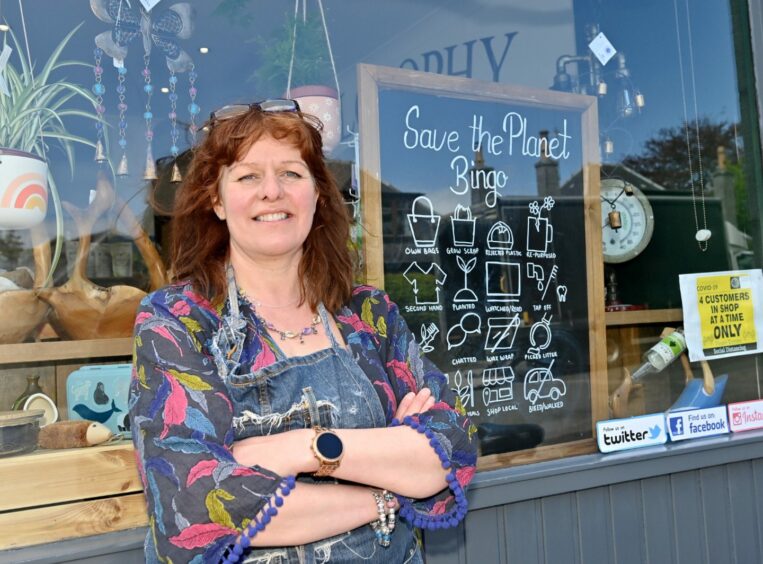
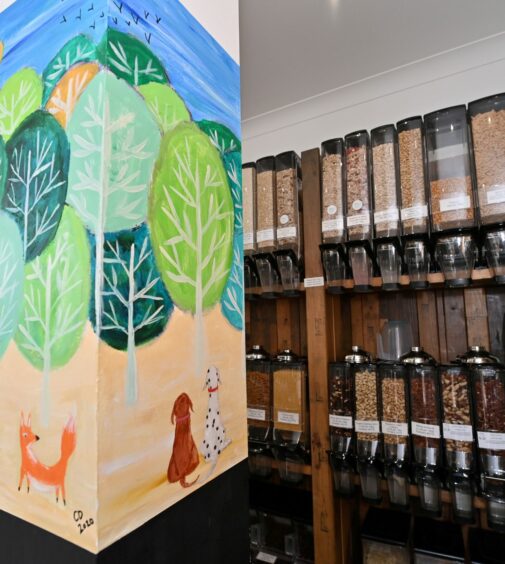

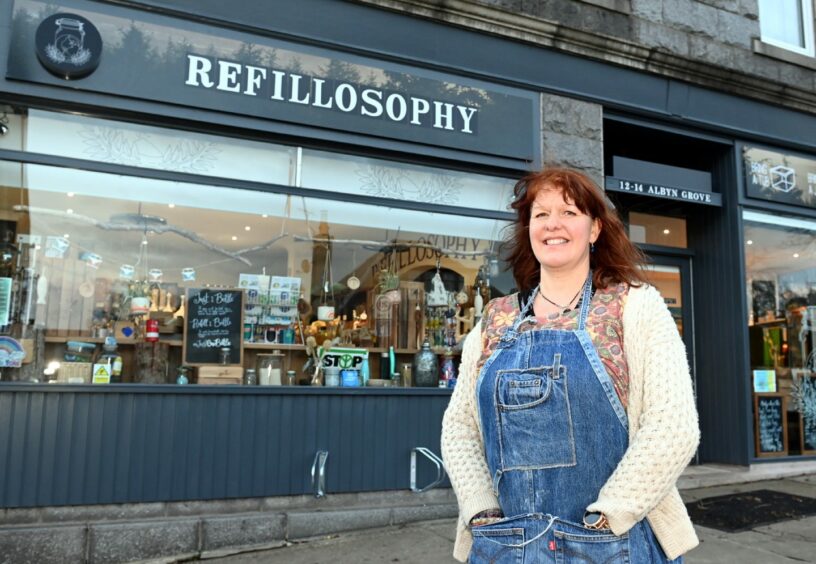
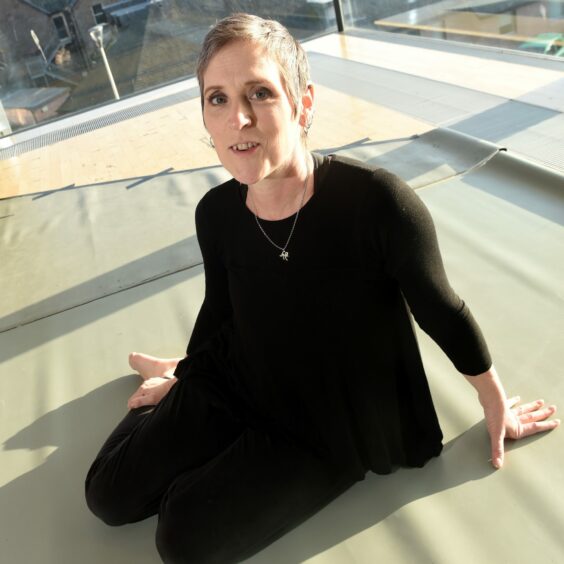

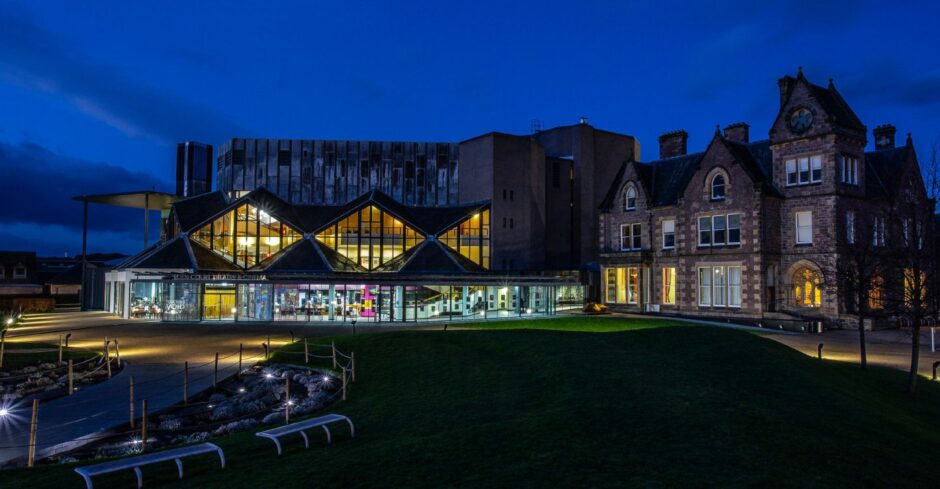
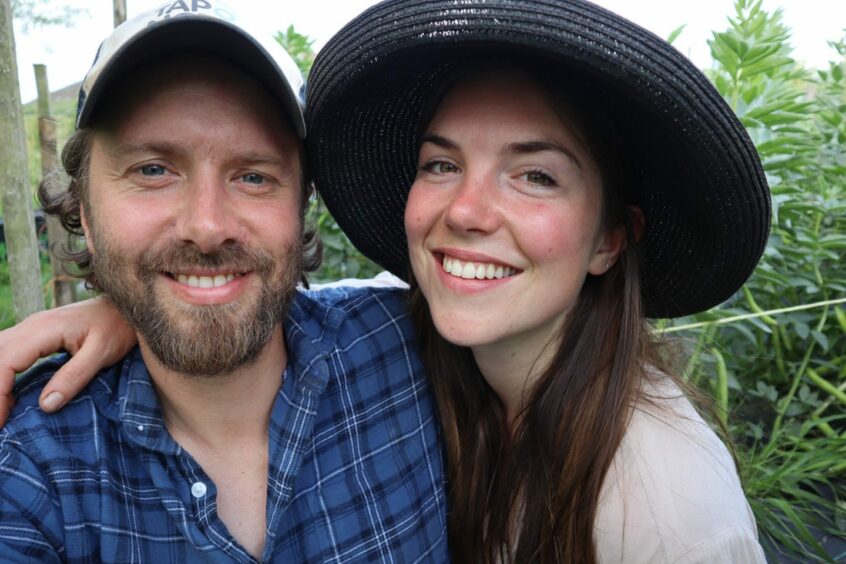
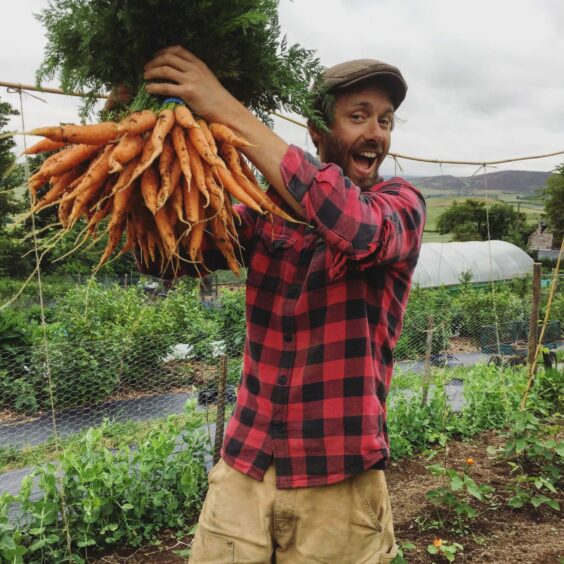

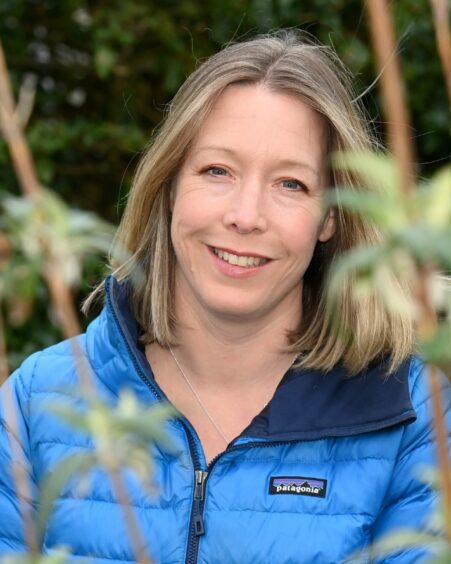
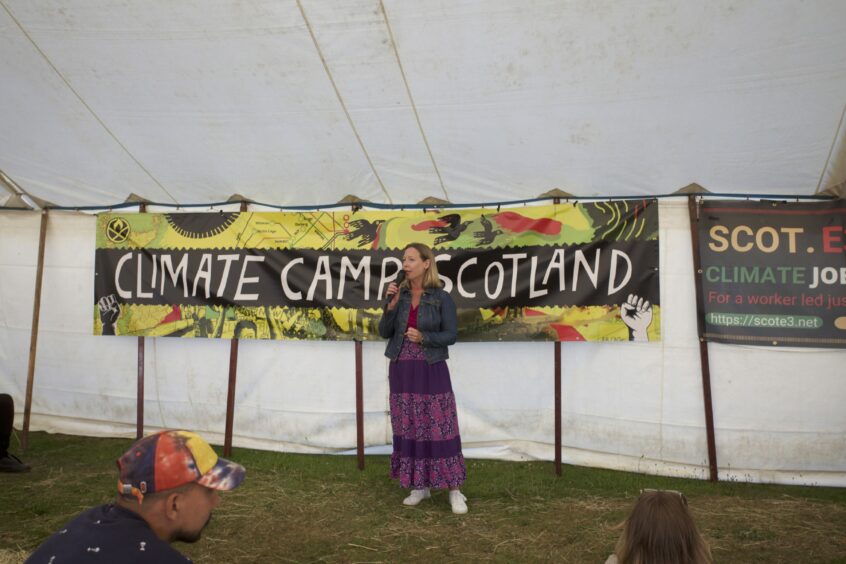

Conversation